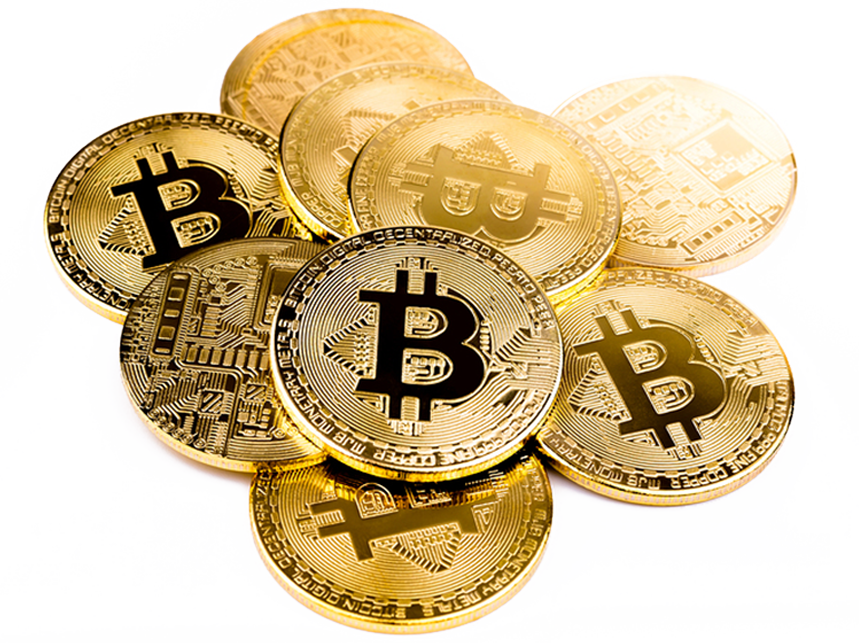What is cryptocurrency?
Cryptocurrency is a digital asset designed to work as a medium of exchange that uses cryptography to control its creation and management, rather than relying on central authorities. It was created in 2009 by an unknown person using the alias Satoshi Nakamoto. Transactions are made with no middle men – meaning, no banks! There are no transaction fees and no need to give your real name. More merchants are beginning to accept them: You can buy webhosting services, pizza or even manicures.
BITCOIN
Bitcoin‘s inventor, Satoshi Nakamoto, described Bitcoin as “A Peer-to-Peer Electronic Cash System” in the original 2009 Bitcoin whitepaper – the document which created the roadmap for Bitcoin. To date, this is still the most simple and accurate description.
Bitcoin is a consensus network that enables a new payment system and a completely digital money. It is the first decentralized peer-to-peer payment network that is powered by its users with no central authority or middlemen. From a user perspective, Bitcoin is perhaps best described as ‘cash for the Internet’, but Bitcoin can also be seen as the most prominent triple entry bookkeeping system in existence.
It is also known as digital cash, cryptocurrency, an international payment network, the internet of money – but whatever you call it, Bitcoin is a revolution that is changing the way everyone sees and uses money.


ETHERIUM
Ethereum is a worldwide network of interconnected computers (nodes) that enforce, execute and validate programs in a decentralized manner without requiring a server, memory, CPU power, or any other computing function, as it is all provided by thousands of ethereum nodes scattered across the world. In short, ethereum is a global computer.
This global computer allows applications, called Decentralized Apps or DApps, through the use of smart contracts – simple javascript like code – to run exactly as they have been programmed, requiring no permission, having no intermediary, in a largely immutable manner, lacking any downtime, censorship, fraud, or third party interference.
It further ensures the operation of ETH – ethereum’s digital currency which turns money into pure code – opening many new opportunities, including machine to machine payments, one click online commerce, decentralized autonomous organizations as well as completely new business models.
LITECOIN
Litecoin is a peer-to-peer Internet currency that enables instant, near-zero cost payments to anyone in the world.
Litecoin is similar to Bitcoin, and in some ways a direct competitor. Like Bitcoin, Litecoin exists as a blockchain where participating nodes process transactions, and miners provide security and verification for each of those transactions.
Litecoin is an open source, global payment network that is fully decentralized without any central authorities. Mathematics secures the network and empowers individuals to control their own finances.
Litecoin features faster transaction confirmation times and improved storage efficiency than Bitcoin.
Since its launch in 2011 Litecoin has seen steady adoption with an active community of traders, merchants, and developers.

RIPPLE
What is Ripple? Well, it is both a digital currency and a payments protocol.
Ripple is a general purpose ledger and payment network based on the key insight that when you try to pay somebody, it’s only going to work if they end up with an asset that was issued by an issuer they trust.
The core of Bitcoin is all about building a trust-free decentralized transaction ledger for tracking the ownership and transfer of scarce tokens – Bitcoins. And the whole point of Bitcoins is that they are counterparty-risk-free assets: my Bitcoin is not somebody else’s liability.
By contrast, Ripple is all about dealing with assets that are somebody else’s liability. So the focus in Ripple is on representing liabilities issued by identifiable issuers and enabling them to be transferred between individuals on a network.
GET YOUR 100% FREE
ETHEREUM IRA GUIDE
See why an Ethereum IRA is another smart way to diversify your investments and learn how to rollover all or a portion of your retirement account into a Ethereum IRA.